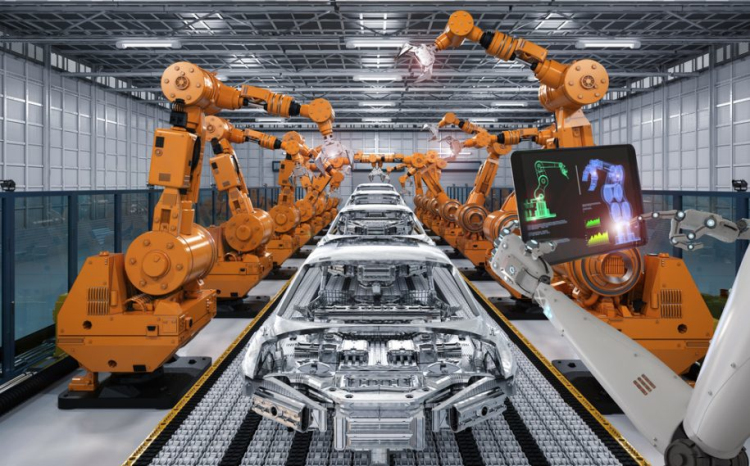Artificial Intelligence (AI) has the potential to enrich and outspread the competences of individuals, and assist companies accomplish further, sooner and more competently.
For a huge cluster of industries including all government and privately owned, such as, banking, retail,healthcare, etc, AI is widely used and is gradually approaching in the manufacturing sector too, enabling industrial Automation.
AI-driven technologies are positioning an easier track to the upcoming years by giving out a cluster of benefits such as creating new opportunities, improving productivity , and fetching machine interface closer to human interaction.
Industry 4.0 is carried out by automation, thereby re-engineering man and machine connection and communication. Implementation of AI in manufacturing sector enables businesses face a total digital transformation.
Significant AI impacts in the Manufacturing Business include:
Quality Control
Manufacturing works producing complicated products like microchips and circuit boards are utilizing AI incorporated high-resolution cameras. This technology captures every minute fine points and detects far better than human eye. When joined with a cloud-based data processor, flaws are rapidly highlighted and a response is automatically synchronized.
Less impact on environment
Gas turbines in manufacturing factories contain huge number of sensors fed into an AI based data processor. This fine tunes fuel valves and reduces emission level as soon as possible.
Get maximum data insights
All wanted as well as unwanted data are gathered continuously and fed in to the AI data processor, from where all insights can be picked up easily which was too time-consuming to analyse in the past.
Communication across the supply chain
Managers are streaming communication between different teams with cloud-based machine learning. Data at one branch can now be used by many other branches due to automated material provision, and maintenance.
Big data optimizes customer service
With the help of correctly examined customer data through predictive analytics, new solutions can be initiated and processes can be made more resourceful. AI provides a real-time view of all types of customer experiences. This enables companies to recognize customer feedback, resolve their issues and create a better and personalized customer experience.
AI predictive maintenance
Companies nowadays use machine learning in maintenance and sustenance services. With the help of sensors, AI helps to records the energy consumption of specific machines, investigate maintenance phases, and then improve them in the following stage. As the volume of data rises, the system becomes enhanced at optimizing itself and building further precise predictions.
Smarter Workforce
Artificial Intelligence have marked its presence in the planning, production and administration sectors of manufacturing industry. The manufacturing industry has started to give credit to industry 4.0 and that machines are no longer limited only to mechanical operations.
With the adoption of digitization, Industrial Internet of things, process automation and augmented reality, manufacturers have started preferring to intelligence and prediction based operations which has no human forces.
Companies have accelerated the adoption of industry 4.0 and all that manufacturers need today is a smarter staff and skills to build AI neural networks and machine learning algorithms.
The AI manufacturing environment would grow too, with the engineering services and AI companies fitting together to statement supply breaches and bring the industry frontward.

